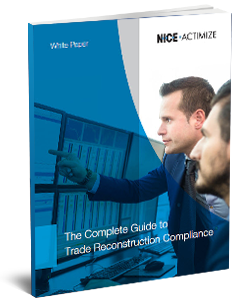How do you deter corporate fraud in one of Asia’s biggest financial hubs?
Recently Hong Kong’s securities watchdog, the Securities and Futures Commission (SFC), and the Hong Kong Police (HKP) signed a memorandum of understanding (MoU) for deeper cooperation in cracking down on financial crimes. The SFC is an independent body regulating the securities and futures markets, with a broad investigative mandate but no arrest powers. By contrast, the HKP, has the power to conduct criminal investigations and pursue criminal prosecutions.
The challenges in corporate governance and auditing
The memorandum of understanding signifies another step in a new approach the SFC is taking as the statutory market regulator of Hong Kong. Earlier this year, Ashley Alder, chief executive officer of the SFC, announced that the SFC will "no longer act behind the scenes" and will use its existing legal powers to regulate listed companies more directly and proactively. Traditionally, the SFC has taken a secondary role in exercising statutory authority, preferring to defer to the Hong Kong Exchanges and Clearing (HKEX) as the front-line regulator and single point of contact in listing matters. Now, the SFC is exercising greater statutory control over disclosure and public interest issues.
Given the size and scope of its financial hub, it’s not surprising that Hong Kong faces many difficult corporate governance and auditing challenges. Hong Kong is Asia’s largest asset management center, with approximately 8,000 companies listed on the Hong Kong Stock Exchange, and a combined fund management business worth HK$17.393tn (Approximately 2.25tn USD). Additionally, Hong Kong has managed to retain its status as the world’s top initial public offering (IPO) market, with 130 companies raising up to HK$220 billion in 2016. This trend shows no signs of stopping, especially considering Hong Kong is still the key conduit for foreign investment into China.
SFC Forms Permanent Investigation Teams
Tom Atkinson, Executive Director of Enforcement at the SFC, has clarified his intention to focus on corporate fraud, market manipulation and intermediary misconduct. In fact, under Atkinson, the SFC Enforcement Division has created four permanent investigative teams, including a corporate misfeasance team which has oversight for probing the misuse of powers by senior management at listed companies. Additionally, Atkinson has formed an insider dealing and market manipulation unit which will investigate cases of traders who profit from inside information and try to influence the market. "Key cases of this nature have wiped out more than HK$200 billion in market capitalization from the Hong Kong stock market, and all of them involved some form of corporate fraud or misfeasance."
Leveraging Call Recording to Prevent Market Abuse
Throughout the world, a trend has emerged in market abuse prevention. There seems to be a widely held belief that bad actors are likely to be deterred by the knowledge that their inappropriate behavior can be detected and subsequently punished.
Several years ago, the Financial Conduct Authority (FCA) established rules regarding the recording of telephone calls with the intention of deterring, detecting and preventing market abuse in the UK. The FSA believed that recorded telephone communications provided vital evidence for demonstrating intention and knowledge, elements which would otherwise be difficult to prove in market abuse cases. In the US, Dodd-Frank and the Commodity Futures Trading Commission (CFTC) placed similar obligations upon swap market participants by expanding the scope of trade practice investigations to scrutinize for patterns of abuse. Today, the propensity toward communication retention continues with the implementation of MiFID II in the EU. The Commission noted:
Increased Early-Stage Intervention?
Greater cooperation between the SFC and the HKP will undoubtedly lead to an increased number of investigations in the region, in addition to bolstering the SFC presence as the primary statutory regulator. With these developments, Hong Kong has taken another step towards joining the other major financial centers of the world, by increasing regulations and prosecutions focused on market abuse prevention. It’s also likely that financial institutions will see increased and direct SFC intervention at earlier stages of market dealings, and in time a formal data recording requirement. That is another reason why the MoU is a significant event and worth closely observing.
More information
These are links to resources to learn more on this subject:
| Capture all trading calls with NICE Trading Recording (NTR) | |
|---|---|
| Assure Complete Compliance with NICE COMPASS | |
| On-Demand Webinar - Compliance Assurance & Skype Recording Integration | |
| Free consultation on how to comply with the latest trading regulations |

